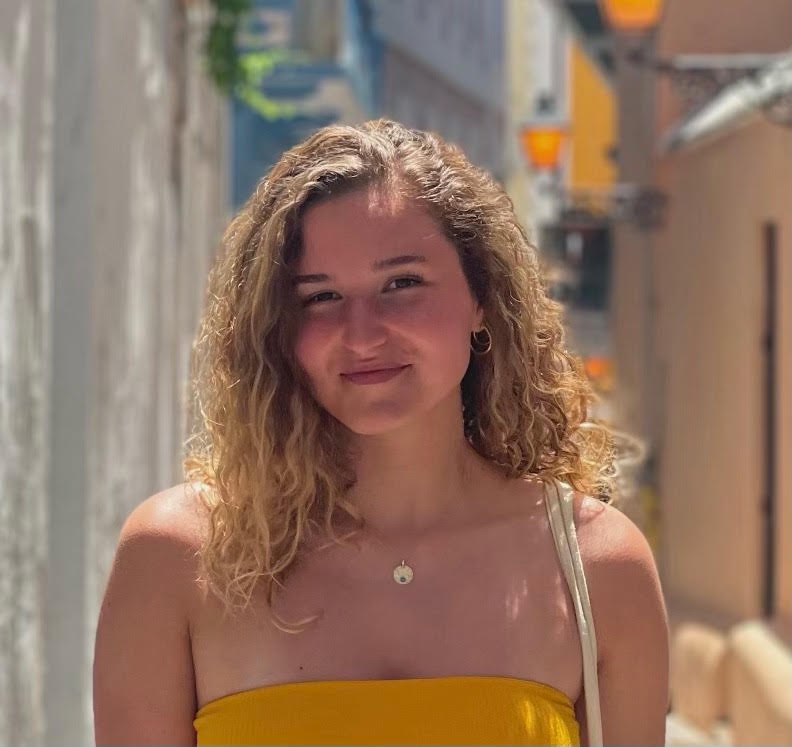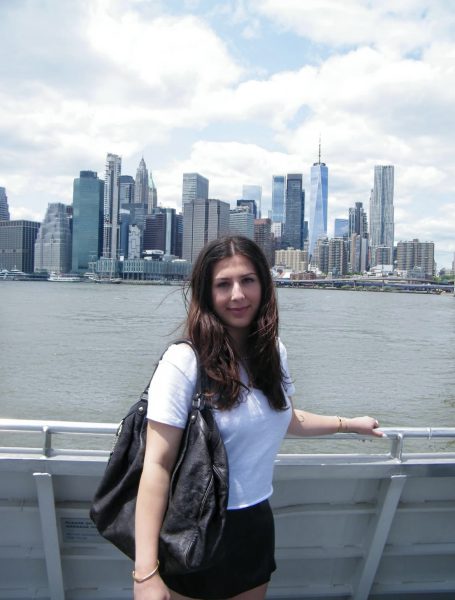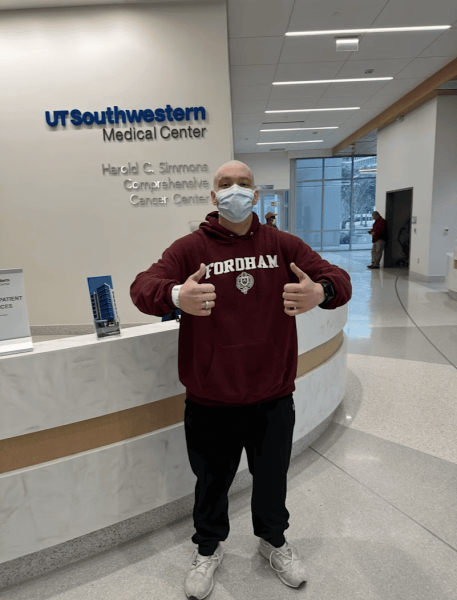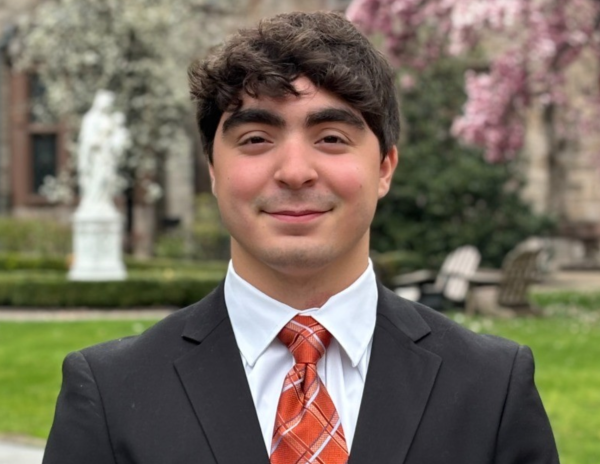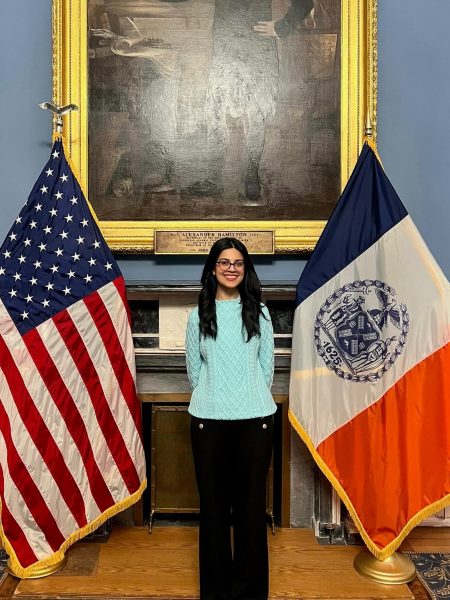Senior Leads the Army ROTC Program
When Olivia Oudkirk, FCRH ’23, was just 18 years old, she made a huge commitment. “It’s one of those things where it’s crazy to think back that it was September or October of my freshman year of college when I decided what I was going to do for basically the next eight years of my life.” In 2019, Oudkirk signed a contract with the U.S. Army that obligated her to serve for four years in Active Duty or eight years in the Reserves or National Guard after college. Oudkirk is a cadet in the Yankee Battalion, New York City’s Army Reserve Officers’ Training Corps (ROTC) program, and a recipient of a four-year, full ride scholarship in exchange for her service and commitments to the program during college.
Although she was young when she signed the contract, Oudkirk doesn’t regret her decision.
“I came into college and didn’t really know what I wanted to do. I was undeclared, but I knew my interests kind of fell within the government, so politics and international relations in general,” she explained.
Oudkirk’s parents work in the State Department and she grew up overseas, which she said influenced her decision to join the army and later declare an international political economy major. “I was like well they’re paying for my college, I will graduate without debt, and then I will have a career for a minimum of four years, and if I hate it I can leave and I will have a career on my resume that I can market.” She added, “for that first month that I was in ROTC [before signing the contract] I was like ‘this is bearable and maybe I can even like it in the future,’ and I feel like that’s sort of how I rationalized making that decision then.”
Since signing the contract, she has discovered many aspects of ROTC that she does enjoy and the program has allowed her to have some incredible experiences. “My summer between sophomore and junior year I got to go to air assault school, and got certified by real army people to repel from Black Hawks which was like the coolest thing I’ve ever done,” she said. This year she will also lead the Yankee Battalion at the Battalion Commander in the Veteran’s Day parade in the city on Nov. 11.
Being a full-time student and an ROTC cadet can be extremely demanding. On a weekly basis, all cadets must attend physical training (PT) twice a week, a military science class on Wednesdays and lab on Fridays. They also attend one Field Training Exercise (FTX) a semester, where they go to an Army base for the weekend to work on tactics and practical implementations of the skills they have learned in class and lab.
As cadets become juniors and seniors, they are also responsible for planning the program activities like PT, lab and other events. Oudkirk explained that the cadets really run the ROTC program. “It’s sort of overseen or supervised by officers and enlisted people in the actual army, so they just sort of check that we’re not messing everything up too badly, while the cadets sort of plan and execute everything.”
Oudkirk says being in these leadership positions, as the First Sergeant her junior year and the Battalion Commander this year, has helped her grow. “Junior year put me in the uncomfortable position of being in a leadership position among my peers, in which I was basically required to hold them accountable for different things that they were not doing, which is very awkward.” She added that she learned how to have difficult conversations with her peers and discipline people within her position in ROTC without it affecting their personal relationship.
Additionally, between junior and senior year, all cadets attend Advanced Camp, a five-week-long test of their skills which includes written tests, a shooting range test, a medical qualification and a two-week FTX: “You get one day or half a day off in between each field section, but that’s when you’re getting tested more on your ability to lead people in stressful situations, so it’s sort of based on tactics, but it’s more based on your ability to sort of be stressed out by situations like where people are shooting or yelling at you and stuff like that, and not freaking out,” said Oudkirk.
Oudkirk went to advanced camp at Fort Knox this summer, “For me it made me more confident in my abilities of ROTC and made me feel like I did want to go active duty, where with other people I know it had the opposite effect,” she said. “So I think it’s a really decisive experience for a lot of people, it either makes you want to do active duty officer or it makes you completely not want to.”
There are 17 branches that Oudkirk could serve in after graduation. This fall she submitted her top choices and will soon receive her branch placement. After graduation and commissioning, Oudkirk will learn where her unit will be. She will then attend a training program before being stationed. “I eventually want to do civil affairs, which you don’t get the opportunity to apply for until like six years in, so that’s the eventual goal,” she said. While she is not 100% sure of what she wants to do now, her drive and determination are sure to help her succeed.
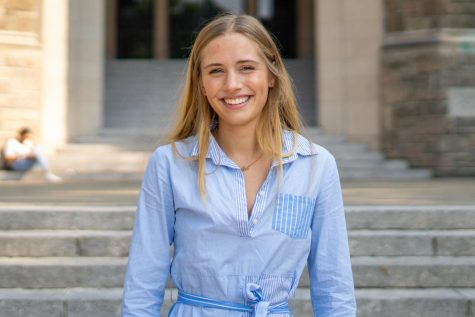
Ava Erickson is a senior from Denver. Her passion for writing and language led her to double major in journalism and Spanish studies. She began working...





































































































































































































